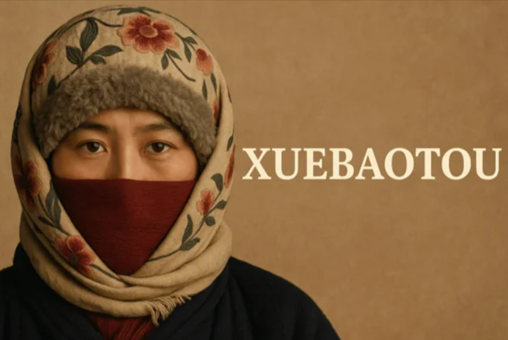Xuebaotou The digital era has introduced countless terms, usernames, and cultural phrases that often seem mysterious at first glance. One such keyword is “xuebaotou”—a term that has appeared in various online platforms, social media, and discussions, sparking curiosity about its true meaning. While it may not yet be universally recognized, its linguistic roots, cultural interpretations, and online relevance make it worth exploring. This article will delve into the origins, significance, and uses of xuebaotou, while also reflecting on why such unique keywords capture public attention in the first place.
Understanding the Word “Xuebaotou”
To understand “xuebaotou,” it helps to break the term into parts, as it appears to be derived from Chinese linguistic structures:
-
“Xue” (学) often translates to “study” or “learning.”
-
“Bao” (宝) commonly means “treasure,” “precious,” or “gem.”
-
“Tou” (头) literally translates to “head,” but in everyday usage, it can also signify “leader,” “chief,” or sometimes a casual suffix used for nicknames.
Put together, xuebaotou could loosely mean “the head of the learning treasure” or “leader of knowledge gems.” Another interpretation could be “precious head of learning.” Depending on context, the term can shift in meaning from academic respect to playful online identity.
Linguistic and Cultural Interpretations
1. A Symbol of Knowledge
In some contexts, xuebaotou can be viewed as a title of admiration for someone who is academically strong. For example, in Chinese slang, the word “xueba” (学霸) already means “top student” or “academic overlord.” Adding “bao” and “tou” may be a creative or affectionate way to elevate the term even further. It can symbolize someone seen as a guardian of knowledge or an intellectual role model.
2. An Online Persona
Many users on forums, gaming platforms, or creative networks adopt unique usernames. Xuebaotou might be one such coined identity, combining intellectual pride with cultural playfulness. It creates an impression of someone who values both education and originality, standing out among typical online aliases.
3. A Nickname of Affection
In informal speech, adding “bao” or “tou” can sometimes soften a name or make it more endearing. Thus, xuebaotou could also function as a cute nickname, possibly used in communities or among friends to describe someone smart yet approachable.
Why Do Unique Keywords Like Xuebaotou Gain Attention?
In today’s information-driven world, unusual keywords often spread for reasons that extend beyond their literal meanings. Here are a few possible reasons why xuebaotou resonates:
-
Mystery factor: Unfamiliar terms spark curiosity. People naturally want to know what they mean and where they come from.
-
Cultural crossover: As Chinese, Japanese, and Korean terms enter global internet culture, users worldwide adopt them for usernames, memes, or niche communities.
-
Identity building: Online spaces encourage people to brand themselves uniquely. A name like xuebaotou is distinctive, memorable, and has a layered cultural touch.
Xuebaotou in the Digital Age
The term has the potential to appear in several modern contexts:
1. Gaming Communities
Gamers often use unique usernames to reflect strength, wit, or creativity. A name like xuebaotou could signal intelligence-based gameplay, such as strategy or puzzle-solving.
2. Educational Platforms
Given its possible translation as “leader of knowledge treasures,” xuebaotou could be used for study blogs, tutoring websites, or educational channels. It naturally conveys authority in learning.
3. Pop Culture and Memes
Internet culture thrives on remixing language. Just as words like “kawaii” or “otaku” crossed linguistic borders, xuebaotou might find its way into meme culture, fan art, or online jokes.
4. Branding and Content Creation
For creators seeking an East-meets-West identity, xuebaotou offers originality. It’s catchy, culturally rooted, and works well in both text and speech.
Broader Reflections: Language and Globalization
The rise of terms like xuebaotou highlights how global communication shapes language evolution. The internet allows words from one culture to become meaningful—or at least intriguing—to audiences worldwide. Just as English words are borrowed into Asian languages, Chinese terms like xuebaotou can spark interest among non-native speakers.
This also reflects the fluidity of modern identity. People don’t limit themselves to one cultural label; they mix elements of language, tradition, and creativity. Xuebaotou embodies this blending of intellectual symbolism with online individuality.
Possible Symbolic Meanings of Xuebaotou
To provide a broader perspective, let’s imagine the symbolic layers of this keyword:
-
Knowledge Leadership – Representing someone who guides others in study or wisdom.
-
Precious Learning – Suggesting that knowledge itself is a treasure to be cherished.
-
Playful Identity – Indicating a balance between intelligence and lightheartedness.
-
Cultural Connection – Serving as a bridge between traditional Chinese expressions and modern digital culture.
Why Xuebaotou Matters
Even if the keyword remains niche, it embodies a larger story about how language travels, evolves, and gains new life online. In essence:
-
It reflects curiosity-driven learning: People who encounter the term want to explore it.
-
It showcases cultural fluidity: Words no longer stay confined within one language community.
-
It represents personal branding: In an era where digital identity matters, names like xuebaotou carve out uniqueness.
Conclusion
The keyword xuebaotou may not have a single, fixed definition, but its richness lies in its versatility. Whether it is understood as “the leader of knowledge treasures,” a playful nickname, or simply a creative online alias, it reflects the dynamic interplay of language, culture, and identity in the modern world.
As more people encounter and engage with unique keywords like xuebaotou, we are reminded that words are not just tools of communication—they are symbols of curiosity, creativity, and connection across global communities. In this sense, xuebaotou is more than just a mysterious keyword; it is a reminder of how language itself is a living treasure, constantly evolving with us.

